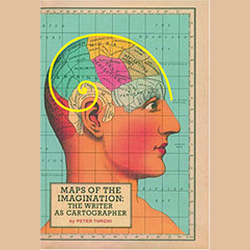
“Chemo Brain is not “all in your mind” It’s real. New Research confirms that the brain is permanently damaged by chemotherapy. After breast cancer treatment women experience many side effects including ongoing problems with attention, decision making, problem solving and memory. Older women and women who do not exercise regularly and are less fit suffer the most.
Nutrients that offer protection to the delicate nerve cells in the brain include Omega 3 fatty acids, Acetyl-L Carnitine, CoQ10, Phosphatidyl Serine, Phosphatidyl Choline and the botanicals Gingko biloba, Bacopa and Gotu Kola. Additionally herbs with high levels of anti-oxidants and polyphenols such as Schizandra, Lycium (GoJi Berry) and plant isolates such as Resveratrol and Curcumin are also protective to the brain exposed to toxic chemotherapy drugs.
a growing body of evidence suggests that patients are at increased risk for altered brain structure and function, according to background information in the article.
Here is an excerpt from Medscape with highlights of the study:
A growing body of evidence suggests that patients are at increased risk for altered brain structure and function.
— Breast cancer survivors who have been treated with chemotherapy show significant changes in brain activity, measured by functional magnetic resonance imaging (fMRI), according to a study published in the November issue of the Archives of Neurology by Shelli R. Kesler, PhD, from Stanford University School of Medicine in California.
She hopes these findings will be helpful for breast cancer survivors who are experiencing such problems, “so that they are less likely to be ignored by their physicians, who sometimes tell them that they’re just imagining the problem. Our study shows that there really is a problem. It’s not just stress. It’s not their imagination. It’s a real brain change.””Emerging research shows that there is a biological correlate of these cognitive problems that these patients are reporting. Historically, there has been some controversy as to whether these problems really exist, so looking at the brain and seeing that there are brain changes validates patients’ experiences.”
“Chemo Brain” Not All in the Mind
Dr. Kesler said that older women and those who were less physically and mentally active were more likely to be cognitively affected by chemotherapy.
“Two of the things we found that predicted more cognitive dysfunction were age and cognitive reserve, so the older you are, the more vulnerable, which is not surprising since you are more vulnerable to a lot of things,” she said.
“When you have been more mentally and physically active, [cognitive reserve] tends to give you more brain capacity, so when something like breast cancer and chemotherapy happens to you, you have more capacity to overcome that,” she said.
S. R. Kesler, J. S. Kent, R. O’Hara. Prefrontal Cortex and Executive Function Impairments in Primary Breast Cancer. Archives of Neurology, 2011; 68 (11): 1447 DOI:10.1001/archneurol.2011.245





